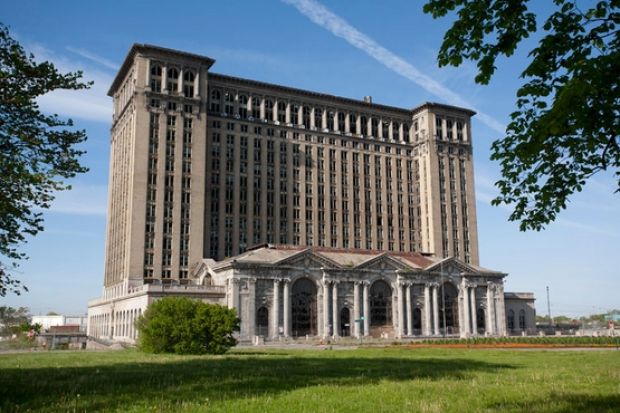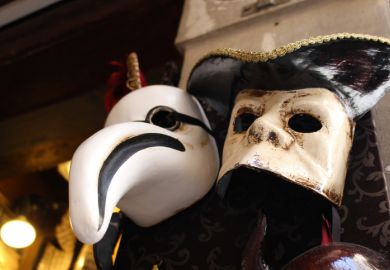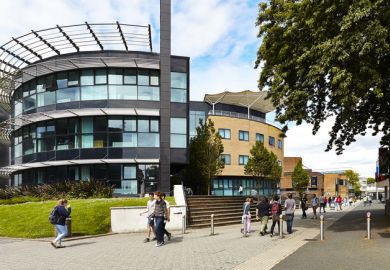Michigan Central train station
The 2013 ARTiculation Prize, which sees school pupils make presentations on their favourite works of art, will be held for the third time at Clare College, Cambridge and this year is judged by Joseph Koerner, professor of history of art and architecture at Harvard University.
The prize started small in 2006 when the New Art Centre at Roche Court, Wiltshire, invited pupils from local schools to take part. As more schools, universities, galleries and museums have got involved, the element of outreach – designed to break down perceptions that history of art is only for students from private schools – has grown.
At the London regional heat held last week – and judged by arts broadcaster Alastair Sooke - six girls and two boys took to the stage at the Whitechapel Gallery to give their 10-minute presentations.
One put the case for the derelict Michigan Central Station in Detroit as “the great American building”. Others offered personal interpretations of pictures by Dali, Raphael and van Gogh, as well as “an unknown painting, which my dad found 20 years ago when walking down the road”.
Abigail Harrison-Moore, senior lecturer in fine art at the University of Leeds, and one of the organisers of regional heats, described herself as “a girl educated at a local comprehensive” who had not been “daring/confident enough to apply to study [art history] when I went to university”, though she later switched track.
“We have worked hard in the North to broaden the reach of the competition to engage with schools that do not teach art history and/or whose students would not traditionally think about this subject at university and might not even be planning to apply to university at all,” she said.
“Our first two northern heat winners have both gone on to apply to universities to study subjects linked to their original presentations, and both have used their experience of ARTiculation in their applications.”
“Opportunities in history of art are really few and far between where I’m from in Hinckley, Leicestershire,” added 2010 winner Mollie Brooks-Crowley, who is now completing a degree in the subject at Cambridge.
“ARTiculation was pretty much the only opportunity I’d come across, besides volunteering at museums. The museum in my town is very small, often closed and dedicated to hosiery.
“My continued involvement with the project has influenced where I want to go after I graduate. I’ve taken pupils around Cambridge from schools where going to university itself is rare, so being able to show them not only one of the greatest universities in the world, but also that it is within their grasp is fantastic. That experience is what makes me want to work somewhere in museums and schools outreach.”
Register to continue
Why register?
- Registration is free and only takes a moment
- Once registered, you can read 3 articles a month
- Sign up for our newsletter
Subscribe
Or subscribe for unlimited access to:
- Unlimited access to news, views, insights & reviews
- Digital editions
- Digital access to THE’s university and college rankings analysis
Already registered or a current subscriber?




